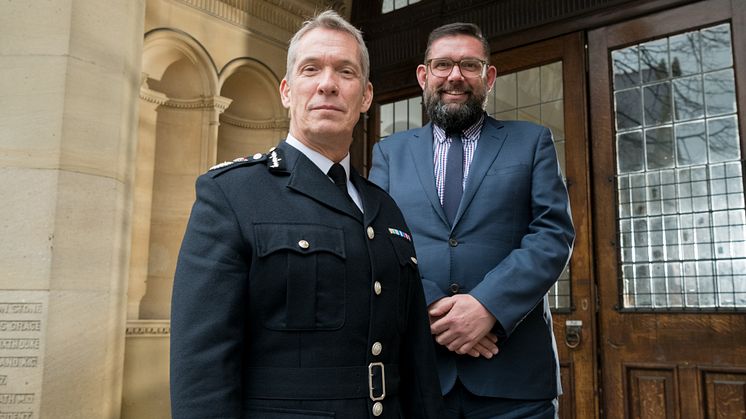
Press release -
Calling for an end to torture and inhumane interrogation techniques
A Northumbria University Forensic Psychologist has contributed to an expert report, due to go before the United Nations later this year, setting out how torture is used during interrogations around the world and recommending the adoption of alternative, humane techniques.
Despite being prohibited by international law, torture is still used in many countries, often during inquiries or investigations, in the belief it will help extract information in criminal cases.
However, research has shown that not only is this practice illegal and immoral, it is also often ineffective, with false confessions leading to wrongful convictions, and gross miscarriages of justice.
Over the last four years Gavin Oxburgh, Professor of Police Science at Northumbria University, has been part of an international steering group which has been exploring the immorality and ineffectiveness of torture.
Led by former United Nations Special Rapporteur on Torture, Professor Juan Mendez, the group includes experts in the fields of interviewing, law enforcement, criminal investigations, national security, military, intelligence, psychology, criminology, and human rights.
The 15 members have now produced a set of Principles on Effective Interviewing for Investigations and Information Gathering. The Principles, which document international good practices as well as established international law and professional ethics, will go before the UN later this year.
Speaking about the work of the steering group, Professor Oxburgh said: “It has been an absolute honour and privilege to be invited to contribute and be fully involved in such a prestigious and worthwhile process.
“There are countries around the world that continue to use coercive techniques and torture individuals in order to gain confessions and elicit information.
“This is a clear breach of a person’s human rights and it should never be allowed to happen, under any circumstances.
“It is so important that we establish a universal protocol that is based on the fundamental principles of international human rights law, and ethically sound and empirical scientific research.
“The discussions we have had during our many meetings and the final product have achieved just that – a set of principles that encapsulate scientifically-proven good practice and are grounded in international law.”
The protocol produced by the steering group will now seek endorsement by the United Nations.
This type of collaborative working between experts from different backgrounds has recently been supported by the UN Human Rights Council, as well as UN member states during the Congress on Crime Prevention and Criminal Justice in Kyoto.
Both welcomed the collaboration between police and law enforcement practitioners, lawyers, human rights experts and other relevant stakeholders on the development of a set of international guidelines for non-coercive interviewing methods and procedural safeguards.
Over the coming months and years the guidance will be shared around the world, especially in those countries where torture is more prevalent, hopefully leading to a change in how interrogation is carried out in future.
Alexis Comninos, Legal Adviser at the Association for the Prevention of Torture (APT), part of the group coordinating this initiative, said: “These Principles are unique, in that they integrate the implementation of legal and procedural safeguards throughout the interview process, with guidance on how to gather accurate and reliable information.
"Such an integration strengthens investigations, and better prevents torture and other ill-treatment in the first hours of custody. This was made possible by the collaboration of a diverse and multidisciplinary group of international experts.”
Professor Oxburgh added: “Torture is immoral, ineffective and illegal, but we also know that when you use those techniques you get false information, whereas when using humane, rapport building techniques, you get better and more accurate information.
“We hope that the work we have carried out over the last four years will show law enforcement and military intelligence organisations around the globe that there are different and better ways of carrying out interrogation.”
Professor Gavin Oxburgh is a member of Northumbria University’s Department of Social Sciences and Centre for Crime and Policing.
At 5pm on Wednesday 19 May, Professor Oxburgh will deliver a live, online lecture entitled The Immorality and Ineffectiveness of Torture: Towards a Universal Protocol for Non-coercive Interviewing. The lecture is the latest in Northumbria University’s Centre for Crime and Policing Seminar Series. Find out more and register here.
Topics
Categories
Northumbria is a research-rich, business-focused, professional university with a global reputation for academic excellence. Find out more about us at www.northumbria.ac.uk --- Please contact our Media and Communications team at media.communications@northumbria.ac.uk with any media enquiries or interview requests ---











